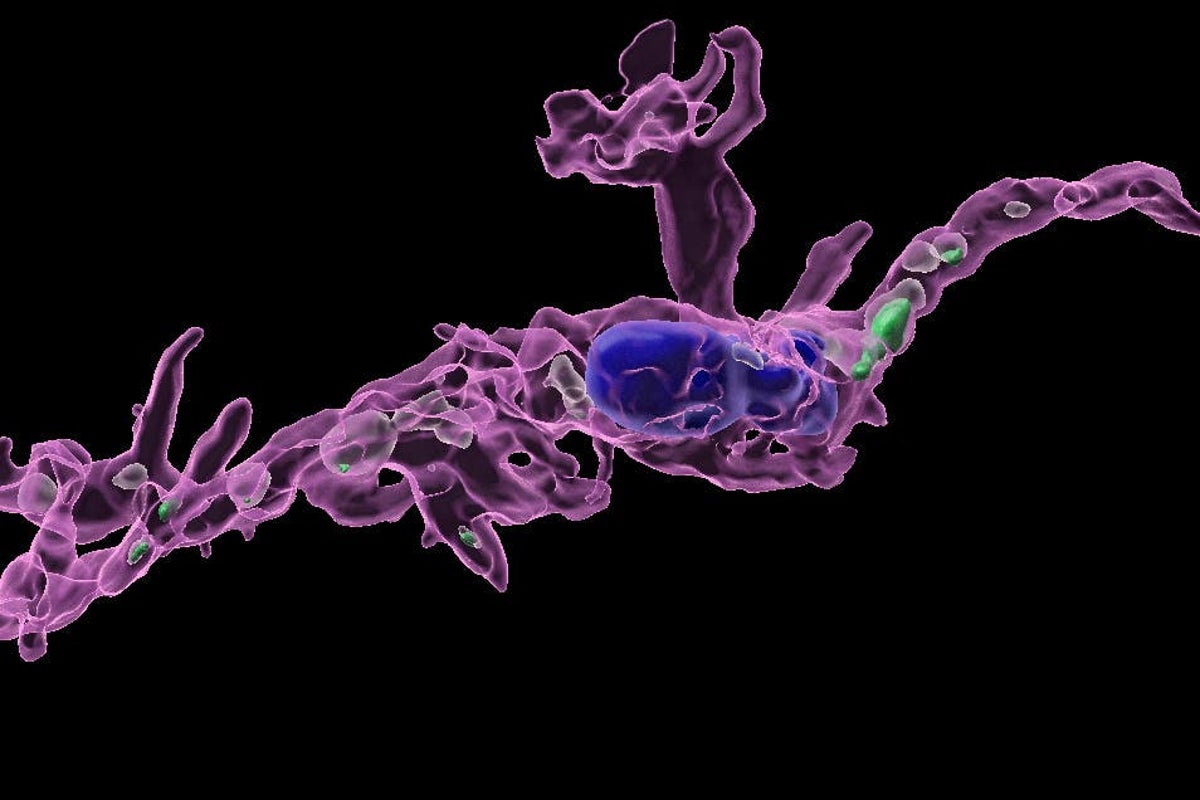
A mother’s high fat diet may rewire the brains of male and female babies differently, new research suggests.
This kind of diet could lead to increased vulnerability to neurological disorders in offspring by disrupting communication between the placenta and the foetal brain.
Researchers found the mother’s high-fat diet triggers immune cells in the developing brains of male mouse pups to overeat the mood-influencing chemical serotonin, leading to depressed-like behaviour.
The scientists suggest a similar thing may also be happening in humans.
They say that while being or becoming overweight during pregnancy can have potential health risks for mums, there are also hints that it may tip the scales for their kids to develop psychiatric disorders such as autism or depression.
Both conditions often affects one gender more than the other.
The parallel exploration in human tissue suggests similar findings and opens an approach to identify possible therapeutic targets which could block or reduce the harmful effects— Neena Modi, Imperial College London
However, it has not been known how the accumulation of fat tissue in the mother might signal through the placenta in a sex-specific way and rearrange the developing offspring’s brain.
To examine this researchers at Duke University in America studied pregnant mice on a high-fat diet.
People with mood disorders like depression often lose interest in pleasurable activities, experts say.
For mice, one innately pleasurable activity is drinking sugar water.
As the animals preferentially sip sugar water over plain tap when given the choice, their drink preference was measured as an estimate for depression.
The study found that males, but not females, born to mothers with a high-fat diet lacked a preference for simple syrup over tap water.
This rodent-like depression suggested to researchers that the mother’s nutrition while pregnant may have changed their male offspring’s brain during development.
Researchers found that depressed-like male mice from high-fat diet mothers had less serotonin in their brain both in the womb and as adults, suggesting these early impacts have lifelong consequences.
The study also investigated the resident immune cells of the brain – microglia.
It found that males born by mothers on high-fat diets had microglia packed with more serotonin than those born to mothers on a typical diet.
This indicated that elevated fat accumulation during pregnancy somehow signals through the male but not female placenta to microglia and instructs them to overeat serotonin cells, the authors suggest.
How fat can signal through the placental barrier remained a mystery, though, but one thought was that bacteria were to blame.
Duke postdoctoral researcher Alexis Ceasrine, said: “There’s a lot of evidence that when you eat a high fat diet, you actually end up with endotoxemia.
“It basically means that you have an increase in circulating bacteria in your blood, or endotoxins, which are just parts of bacteria.”
Examining this, the scientists found that high-fat diets during pregnancy beefed up endotoxin levels in the placenta and their offspring’s developing brain
To see if this may be true of humans as well, researchers looked at human placental and foetal brain tissue from a previous study.
Just as they observed in mice, they found that the more fat measured in human placental tissue, the less serotonin was detected in the brains of males but not females.
The findings may one day help guide doctors and parents in better understanding, and possible treatment or prevention of the origins of some mood disorders.
The research is published in Nature Metabolism.
Neena Modi, professor of neonatal medicine, Imperial College London, said: “This controlled mouse study indicates a causal relationship between maternal high fat diet and neurobehavioural effects in offspring, and it identifies a biological pathway.
“The parallel exploration in human tissue suggests similar findings and opens an approach to identify possible therapeutic targets which could block or reduce the harmful effects.”







